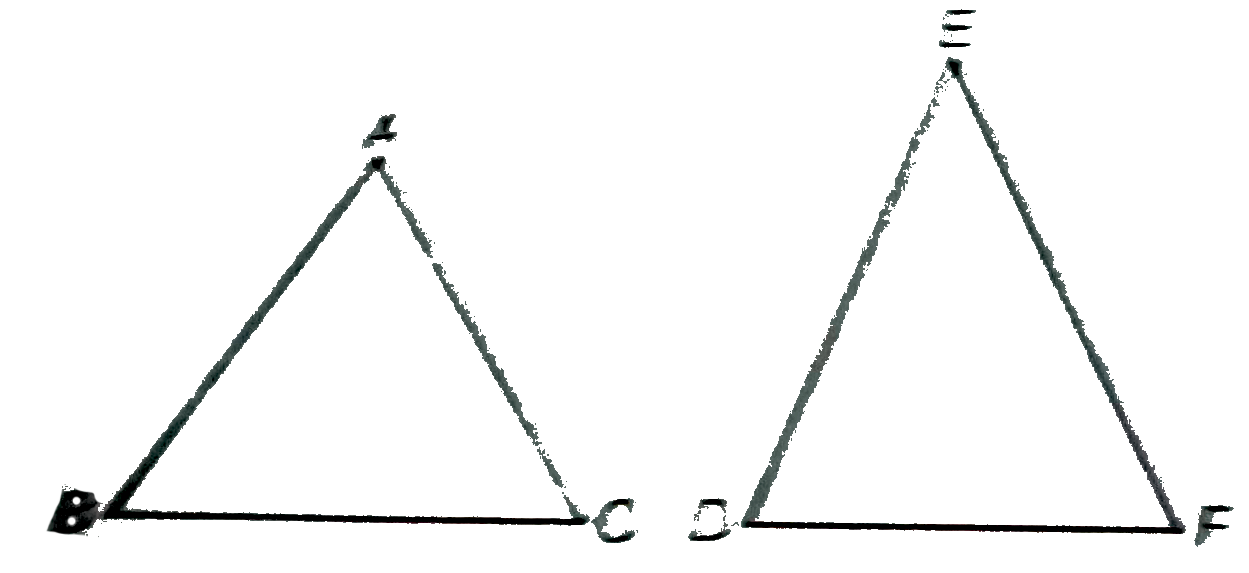If ΔABC~ΔEDF and ΔABC is not similar to ΔDEF, then which of the following is not true?
A
BC⋅EF=AC⋅FD
B
AB⋅EF=AC⋅DE
C
BC⋅DE=AB⋅EF
D
BC⋅DE=AB⋅FD
Video Solution
Text Solution
The correct Answer is:C
Given, ΔABC~ΔEDF
∴ABED=BCDF=ACEF

Taking first two terms, we get
ABED=BCDF
⇒AB⋅DF=ED⋅BC
or BC⋅DE=AB⋅DF
So option (d) is true.
Taking last two terms, we get
BCDF=ACEF
⇒BC⋅EF=AC⋅DF
So option is also true.
Taking first and last terms, we get
ABED=ACEF
⇒AB⋅EF=ED⋅AC
hence, option (b) is true.
|
Topper's Solved these Questions
Similar Questions
Knowledge Check
If ΔABC≅ΔPQR then which of the following is not true?
ABC = PQBAC = PRCBC = QRDAB = PQIn a ΔABC , which one of the following is true ?
A(b+c)cosA2=asin(B+C2)B(b+c)cos(B+C2)=asinA2C(b−c)cos(B−C2)=acosA2D(b−c)cosA2=asin(B−C2)In a ΔABC ,which one of the following is true?
A(b+c)cosA2=asin(B+C2)B(b+c)cos(B+C2)=asinA2C(b−c)cos(B−C2)=acosA2D(b−c)cosA2=asin(B−C2)
In ΔABC if acosB=bcosA then which of the following is always correct :
View SolutionIf ΔABCandΔDEF are so related the ABFD=BCDE=CAEF, then which of the following is true?
View SolutionIn ΔABC,∠C=2∠A and AC=2BC. Then which of the following is/are True ?
View SolutionIn ΔABC, if the angles A.B.C are in AP, which one of the following is correct ?
View SolutionIf AD, BE and CF are medians of ΔABC, then which one of the following statements is correct ?
View Solution

